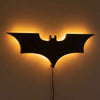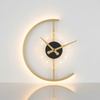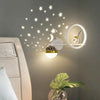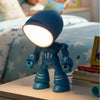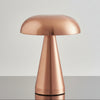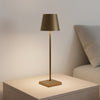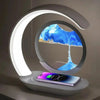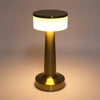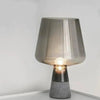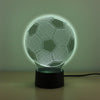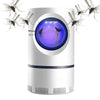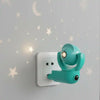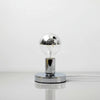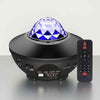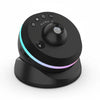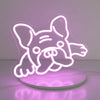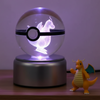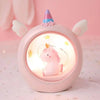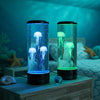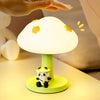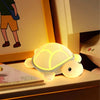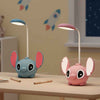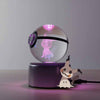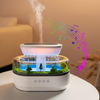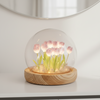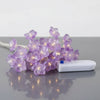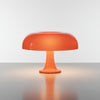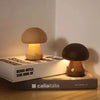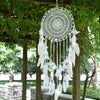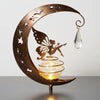
Ah, LED night lights!
These little lights that light up our nights, soothe our fears and guide our steps in the darkness. But what about the LED night light? Are they really beneficial for our health, or do they hide a dark side?
- Blue Light : LED night lights emit blue light, similar to that of computer and phone screens. This light can disrupt our body clock by suppressing the production of melatonin, the sleep hormone. Result ? Restless nights and difficult awakenings.
- Impact on Sleep : Blue light inhibits the production of melatonin, which can lead to sleep disorders. If your night light is too bright, it can disrupt your rest and that of your baby.
- Mental Effects : Blue light can also affect our mood and well-being. It is associated with anxiety, depression and fatigue. Not quite the soft, calming ambiance we're looking for in a night light, is it?
- Choosing the Right Night Light : If you opt for an LED night light, choose one with adjustable intensity. Reduce the brightness to a minimum during the night to minimize harmful effects.
Melatonin, this magic hormone that orchestrates our sleep cycles! 🌙✨
When the sun sets, our body goes into “night” mode. This is when the pineal gland, located in our brain, begins to produce melatonin. This small molecule is like a magic wand that plunges us into a sweet sleep.
But beware ! Artificial light can disrupt this magic. When we are exposed to bright screens (like our phones or computers) before sleeping, our melatonin production is slowed. Result: restless nights and difficult awakenings.
So, to preserve this precious hormone, let's turn off our screens and let melatonin do its work as a nighttime magician! 🌟💤

Losing sleep is just the beginning
Loss of sleep is a major issue, well beyond simple restless nights. In fact, studies have found that lack of sleep can lead to a variety of problems, from irritability to memory problems and even more serious health problems. But did you know that melatonin and cortisol, two hormones produced at night, play a crucial role in our well-being?
Take the example of cancer. Dr. Richard G. Stevens, a cancer epidemiologist and professor at the University of Connecticut, conducted an interesting experiment. He injected laboratory rats with carcinogens. Half of these rats also received melatonin injections. Result ? The rats given melatonin avoided developing cancer, while the others were not so lucky.
So, how can we preserve our health? A good night's sleep is essential. And for that, there's nothing like a room plunged into darkness. Melatonin, this little nocturnal magician, thanks you! 🌙💤
Shedding light on depression
Light plays a crucial role in our well-being, and its impact on our mood should not be underestimated. A recent study from Japan found a strong association between exposure to low light at night and depressive symptoms in older adults . Although this research focused on older adults, it is important to note that the effects might be even more pronounced in younger people, whose eyes are more sensitive to light.
Simply falling asleep with the TV on or spending time online before bed can be enough to trigger depressive symptoms in a person of any age. To preserve our mental well-being, it is advisable to turn off as many light sources as possible before going to bed, especially LEDs. The good news is that you can reverse these effects by changing your nighttime habits. 🌙💡
Avoid blue light when sleeping
Blue light, the bright radiation from the sun and the LCD/LED screens of our electronic devices, can impact our attention, reaction times and mood during the day. However, at night, it disrupts our biological clock, tricking our body into thinking it needs to stay awake when we need sleep. Fortunately, there is a solution: red, dim night lights. Investing in these night lights can soothe children who are afraid of the dark and promote peaceful sleep. 🌙💡

Avoid blue light when sleeping
Blue light, the bright radiation from the sun and the LCD/LED screens of our electronic devices, can impact our attention, reaction times and mood during the day. However, at night, it disrupts our biological clock, tricking our body into thinking it needs to stay awake when we need sleep. Fortunately, there is a solution: red, dim night lights. Investing in these night lights can soothe children who are afraid of the dark and promote peaceful sleep. 🌙💡
- Melatonin, this little nocturnal magician, plays an essential role in our well-being. It regulates our internal clock and our sleep cycles. When the light dims, our bodies naturally produce more, preparing us for sleep. However, exposure to artificial light, particularly from screens, can disrupt this production. To preserve our mental well-being, it is advisable to turn off as many light sources as possible before going to bed, especially LEDs. The good news is that you can reverse these effects by changing your nighttime habits. 🌙
- Melatonin is a hormone naturally produced by our brain, more precisely by the pineal gland. Its main role is to regulate our internal clock and our sleep cycles. It is therefore a key element in the management of certain sleep disorders. It also has a “chronobiotic” activity, which participates in the synchronization of our biological clock with the circadian rhythm, this 24-hour cycle to which most of the functions of our body are subject. Melatonin production increases at the end of the day, when the light dims. This is the signal that it's almost time to go to bed! Its concentration in the blood increases to reach its maximum around 3 or 4 a.m., then it drops to become minimal again when it is time to get up. But external brightness can change the situation: the light perceived by our retina is directly transmitted to our main internal clock, located in a part of the brain called the hypothalamus. The information is then relayed to the epiphysis (or “pineal gland”), the small structure responsible for secreting melatonin. So, when we expose ourselves to too much light in the evening, this system sends the following message: “No need to start producing melatonin: it’s still daylight, it’s not time to sleep . » And that's how we become unable to fall asleep after a whole evening spent in front of the powerful light of a TV, computer or telephone screen. But this system is also the one that allows us to adapt to time changes and time differences. Hence the idea of using synthetic melatonin to “force nature” and relieve sleep disorders. This approach can actually be considered in certain situations, to make it easier to fall asleep or to mitigate the effects of jet lag (particularly when traveling across more than five time zones, to the East). Many other uses have been proposed: treatment of migraines, fight against the effects of aging, stimulation of immunity... But none of them is based on solid scientific data. Therefore, beware of self-medication! Especially since the consumption of this small molecule is not harmless and exposes one to various adverse effects: drowsiness, headaches, dizziness, nausea, etc. In 2018, the National Health Safety Agency

Let there be light ! (in the morning, of course...)
The morning light is like a sweet melody for our still sleeping eyes. She gently wakes us up, reminding us that a new day is beginning. When the first rays filter through the curtains, they bring with them a promise of freshness and renewal.
Opening the curtains as soon as you're up is a great way to synchronize your body clock with the natural day and night cycle. Natural light stimulates the production of melatonin, the sleep hormone, and promotes a positive mood. It helps you wake up from deep sleep and prepare you for an energetic day.
But what if you wake up before the sun? Do not panic ! There are other ways to bring that gentle morning light into your life:
-
Low wattage bulbs : Opt for 45 to 50 watt bulbs. Their soft and warm light will gently welcome you as soon as you wake up.
-
Smart night lights : These little wonders can change color. Program them to change from a calming yellow/amber light at night to a brighter light in the morning. They will help you wake up gently and start the day well.
So let there be light! And may each morning be a luminous symphony for your eyes and your mind. 🌞💡
If, despite these tips, you still cannot sleep, I recommend that you consult a health professional. He or she will be able to assess whether underlying problems, such as a sleep disorder, require specific treatment. Your well-being is essential, and quality sleep is a key element to a healthy life. 🌙💤

